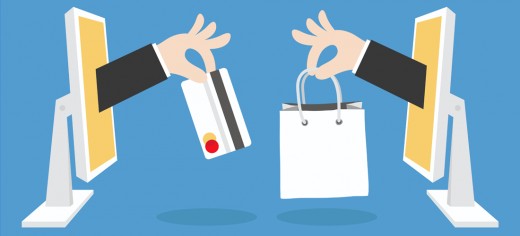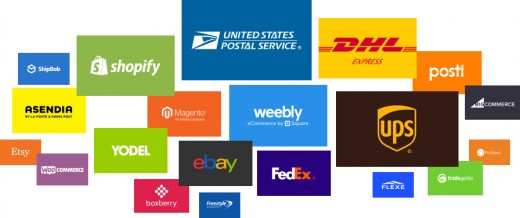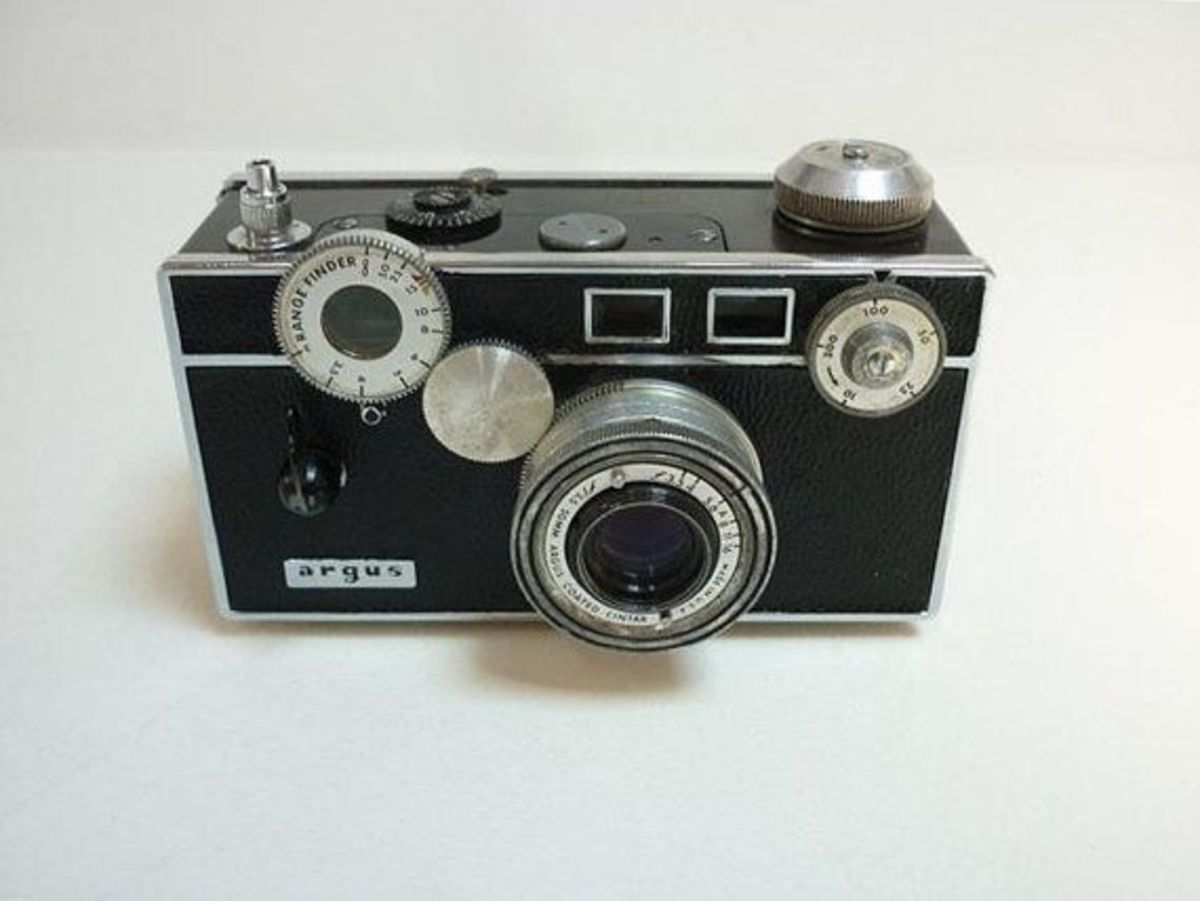How To Make Your First Sale Online

Before you can reach any monetary goal for your online business, you have to make your first sale. It's the simplest goal you can make, beyond simply getting an online store up and running, and the decisions you make in order to do that contribute to how long it takes you to make your first sale. Making your first sale starts there, at the very beginning, but there is so much more to it.
Many people make the mistake of setting their first goal too high, and that can be your downfall before you even get your online store online. If you make your first goal require a lot of effort to reach, it seems too far away. Putting together your online store and deciding how you're going to run your website are daunting enough tasks on their own, you want to feel like your first goal will be reachable very quickly after you're up and running so that you don't lose motivation or interest in getting your store up at all. Don't set yourself up for defeat, making your first sale is a perfect opening goal. You can set a higher one after you've reached this one, and continue to set higher goals as you reach them.
Offer the best product possible and believe in its value
This is probably the most obvious piece of advice that I can give you, but the best way to make sure you make your first sale as quickly as possible is to make sure that you have a product that is worth buying. Don't rush into opening your online store just because you want to make a quick buck as soon as possible, you'll ruin your reputation by becoming someone who lacks quality and that will dampen your ability to get anywhere big as a business. People will always be hesitant, there will always be those that remember your poor start.
Ask your friends what they think of your product, and keep yourself open to comments from your customers after you open shop. The best way to know what will sell and how to better your product is by asking the people that would buy it how you can do that. Keeping a suggestion box of sorts on your main page right out in the open will always be a valuable asset, but encouraging your potential customers to tell you what they think about your online store and your product is especially helpful when you're first starting out. You'll get suggestions on everything from small details like colors people would like to buy things in to new products people are looking for that they think you can provide.
Really look at each item you're planning on hosting in your catalog. Can you improve the quality? All of your sample prototypes should be the best examples of your work, none of the start-up process should be taken lightly but this is vitally important. Nobody is going to want to buy an inferior product, especially if your market is one with many competing stores. Take your time, put love into your prototypes and take flattering photos that make them look their best.
Engage your potential customers with product descriptions that fully describe all of the reasons that people should buy your product without going on long enough to lose their interest. Product details that would catch interest should be highlighted. Make sure there is some personality to these too, you're more likely to catch a customer if you appeal to their humanity than you are if you read like a robot.
Start small when building your catalog
This is less about the size of your catalog than it is about the size of the items within it. It's easy to want to start with big items so that you can make a lot of money with each sale, but you'll make your first small sale well before you make your first big one. If you're an author, for instance, customers are more likely to pay a small amount to test your writing skill on a small, short story than they are to pay for a whole book. If you make clothing, they're more likely to buy an accessory than they are to buy or commission you for a full outfit. They don't know your written voice, if they like your content, or the quality of what you write. You're trying to make your first sale, so you don't have a reputation to rely on. Nobody knows that you're worth the cost of a bigger item. Single and smaller double digit prices are going to be what draw in your first sale.
So you've already considered your skills and what you can best produce, start with the smaller products that will take less time to make so that you can justify charging as little as possible. It's hard to resist an inexpensive, small treat. What are the cons of spending some change? Not much comes to mind, especially when the pro is getting something cool and new. After you've sold a few smaller items, you can start focusing on bigger products and your customers will be more willing to give you that bigger amount of money for that singular item. It's also easier to follow through on completing more than one small prototype for more than one small product and it takes a lot more time to make multiple large products.
Think about what you're charging for your products and think small there as well. We all want to make money, but if you settle for a smaller profit margin, you can more easily make your first sales and that will build trust with your customers. After you've made a reputation for making quality products, you can raise your prices. People are willing to pay handsomely for quality, but not for uncertainty.

It's best to start on a simple e-commerce platform
The simplest e-commerce platforms allow you to set up an online store without having to pay up front and they don't require much aside from information about your business to be ready to use.
- Ebay is the first online marketplace, and is often the first e-commerce platform that comes up when thinking about e-commerce software. You can buy and sell just about any physical product you could imagine.
- Amazon is a little more modern, but it is much like Ebay. One of it's highlights is the Amazon Kindle program that allows authors to self publish and make money through them.
- Etsy is run with the same concepts as the two above, but it is focused more on the art crowd. If your product is something that you craft, this could be the place for your online store. Customers on this site generally pay more than those on either of the above listed sites, but that is because it is a niche site and in my experience, it's more expensive and more of a hassle to admin.
- Upwork is the Etsy for digital goods; its focus is on writing, design, and administrative work. If your online business is about creating a digital product, this could be the place to start. In most cases, you will have to go to your customer, not the other way around, but you can make a name for yourself.
How you set up your online store and what you put in it is important, but where you put it is just as influential on your level of success and how quickly you make your first sale. That goes double when you're trying to reach the goal of making your first sale. The reasons for that are simple.
Simple e-commerce platforms come with a simple setup process
Simple, right? If the setup is quick and easy, it makes sense that your online store will up for sooner, and you'll make that first sale that much sooner. When you go with the simplest e-commerce solutions, you have very little customization privilege, so you don't have to spend very long worrying about making use of extra features. Your main page will likely be very close to the same as every other online store on the platform, and it's almost difficult to make yourself look unprofessional with the options at your disposal.
Simple e-commerce platforms come with customer
The term online marketplace has been used a few times, and the definition is quite literal. Imagine a marketplace full of stores, with customers walking around looking to spend money. Now imagine it's online. Any of the above listed e-commerce platforms are not only places where online business owners go, they're places that consumers go to consume. If you've chosen a profitable product, people will go to these places looking for exactly what you are selling. There is no easier way to make a sale than to be where there is a demand, holding out your supply.
You may still want to advertise on other channels, but when you use an e-commerce software that comes equipped with its own online marketplace, it is possible that you may make that first sale before you've gotten that far.
Set up the best online store that you can
We all have skills and resources, not everyone is capable of starting with their own custom website full of fancy features, but it can feel like you have that much to offer if you put real time and effort into what you do put together. Don't let yourself cut corners or get lazy while putting your online store together.
Make sure that you have succinct but detailed information on:
- what your online business is all about
- details about the specific product you offer, including price
- how customers can contact you
Never forget to think about accessibility
The other mistake online business owners make with their website is not thinking about accessibility. There is a high percentage of people in the world that have trouble seeing, and using small fonts or color schemes that are difficult to read will push them away from your online store immediately. There is an agreed upon accessibility rule on font size that came from vision experts of 16px or greater, so keep that in mind. The difference between text and whatever is behind it should be as clear as black on white. That may mean using bold text, and it may mean compromising on aesthetic, but it will mean that more people are able to buy your product. The number one reason that people leave any website is because they can't access it easily.
Marketing, marketing, marketing
You can't make your first sale if the consumers that would be interested in your product can't find your online store. If you've decided to open your online store on a simple e-commerce platform, then you're already in an online marketplace that customers might see, but that's not always enough. And it's never enough if you want to access the full potential of your online business.
As handy as being part of an online marketplace is, it doesn't guarantee that anyone will be looking on that particular marketplace for your particular product. Remember that the easiest way to make a sale is to be in the right place when someone is looking for the exact thing that you're selling?
Make use of social media platforms
The most useful aspect of social media platforms is the ability to tag things so that they come up when people search for those key words or phrases. If your business is art commissions, you can tag an advertisement and people looking for art commissions will find your post. If your business is writing, you can use appropriate tags and people looking for your genre of writing will find your post. If you sell clothing, you can use the appropriate tags and people that are looking to buy clothing will find your post.
The people that find your posts can choose to follow you, which allows you the opportunity of being brought back into their line of sight every time you post. They can reblog your posts, which will share them with all of their followers. You can encourage your customers to take photos after they purchase your product as well, which furthers your reputation and puts you in the position to be seen by more potential customers.
- Tumblr is one of the most commonly used social media platforms when it comes to people browsing tags. Your posts can be any length and include images and your blog is completely customizable.
- Instagram has quickly become one of the most popular social media sites to make money on, drawing in your first customer there could be as easy as making a profile and posting effective ads.
Promotions where participants must be following you and reblog your promo post are commonplace on social media sites. For the promise of a prize, which means at the loss of a prize on your end, people will participate in the thousands. A grand opening would be the perfect excuse to hold a promotion like this, and it builds excitement for your online store and your products. The winner may even post photos when they get their prize, more likely so if you subtly encourage them to do so, and their excitement will tell other potential customers that your product is worth being excited for.
Advertise in the real world too, not just online
You might discount your local customers, but they could be some of your first. Places like coffee shops and colleges have corkboards that you're allowed to place flyers on. Check online for information on events that might be relevant to your product and attend, if only to hand out some cards. Always carry some kind of physical advertisement for your online store on your person, just in case it comes up. It's better to have them and not need them than to miss out on your first sale because you couldn't make sure your first customer knew where to go and didn't forgot your web address before they got home.
Above all, don't give up!
There is nothing more true when it comes to the success of your online store than the fact that you can't make your first sale if you give up. Even if you go the easiest route possible, it may still be difficult. It may still take time. But you'll find success if you persist and keep at it. You can't quit, you have to put forth the effort and you may even have to go an extra mile or two.
Look at other online stores that are similar to yours and see how these business owners represent themselves. What are they doing differently than you? You don't want to copy them, but you do want to learn. Whether your online store is a success immediately or not, you would always be looking to improve so that you can raise the bar for what your customers consider to be the best; both your product and your online store.








